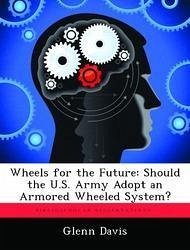This monograph discusses the importance of wheeled armored systems for the US Army's future force design. Operational ideas require future forces be designed for rapid strategic deployabilty high lethality, operational mobility, survivability, versatility, and sustainability. It becomes a question of the tactical requirements that dictate whether the characteristics inherent in wheels or tracks better suits achievement of the intended results. The monograph briefly examines the current European situation and provides assessments of selected regional areas which crises may occur. Next, a comparison with Sir Julian Corbett's maritime fleet constitution draws corollaries from his theories of specialization, functions, and complexities. Next, an historical perspective examines the successes and failures of the following: the US Army's use of armored wheeled systems (the armored car and tank destroyer), the United States Marine Corps'; LAV-25 program, and the French experience in Chad. The remainder of the monograph addresses three fundamental questions linking armored wheeled systems to current battlefield requirements. These questions are: Can armored wheeled systems complement light forces in crisis operations as well as highly mechanized forces operating in war? Do armored wheeled systems provide the staying power on the battlefield? Given finite sea and airlift capabilities, can armored wheeled systems be deployed into a theater of operations without degrading the total amount of rapidly deployed forces available to conduct immediate operations?
Hinweis: Dieser Artikel kann nur an eine deutsche Lieferadresse ausgeliefert werden.
Hinweis: Dieser Artikel kann nur an eine deutsche Lieferadresse ausgeliefert werden.








